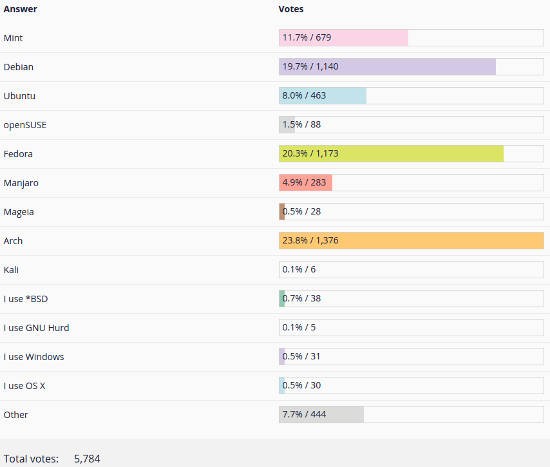There’s been a lot of talk recently about the number of GNU/Linux distros there are out in the wild. This is nothing new, as this has been an ongoing discussion among Linux users for at least as long as I’ve been using Linux.
In a nutshell, in case you’re new to the Linux world, some say that the overabundance of Linux distros is overkill, that it weakens the development by spreading developers out on the various distros when they could be focused on just one or two key distros. Those in this camp also claim that the huge number of distros also confuses the public, thereby acting as a roadblock to desktop Linux’s growth.
On the other side of the fence, there are people who claim that the choices offered by the numerous distros are actually good for Linux, that the plethora of distros means that users can find an implementation of Linux that’s just right for them.
I’m in the latter camp, but that’s neither here nor there. No matter which side of the fence you sit, there’s actually not nearly so many distros as there may seem.
Christine Hall has been a journalist since 1971. In 2001, she began writing a weekly consumer computer column and started covering Linux and FOSS in 2002 after making the switch to GNU/Linux. Follow her on Twitter: @BrideOfLinux




 Missing from the list were two distros that are almost exclusively associated with server environments, Red Hat and SUSE Linux Enterprise. They were not included in our list because they’re rarely offered without additional cost by hosting companies because they’re not freely available to download and install.
Missing from the list were two distros that are almost exclusively associated with server environments, Red Hat and SUSE Linux Enterprise. They were not included in our list because they’re rarely offered without additional cost by hosting companies because they’re not freely available to download and install.